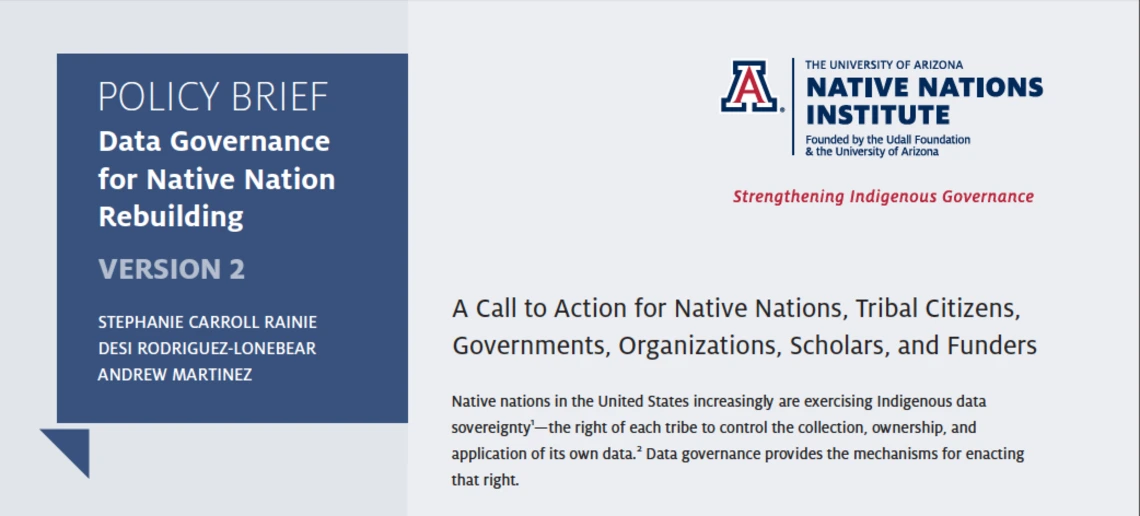Native nations in the United States are increasingly exercising Indigenous data sovereignty (ID-Sov)— the right of a nation to govern the collection, ownership, and application of its own data. While ID-Sov is the goal, data governance— the ownership, collection, control, analysis, and use of data— provides the mechanisms for achieving that goal. This brief serves as an initial primer on Indigenous data governance. It describes the relationship between reclaiming Indigenous data and Native nation rebuilding. This brief extends the ID-Sov conversation to tribal data governance and the implications for how other (non-tribal) entities govern data related to tribes, their citizens, lands, and communities.
Additional Information
Rainie, Stephanie Carroll, Desi Rodriguez-Lonebear, and Andrew Martinez. 2017. Policy Brief: Data Governance for Native Nation Rebuilding. (Version 2). Tucson: Native Nations Institute.



